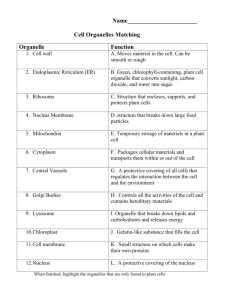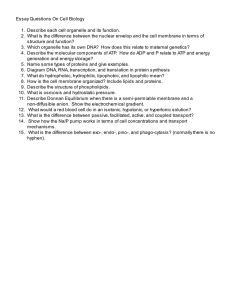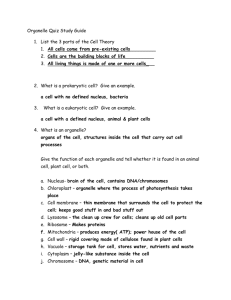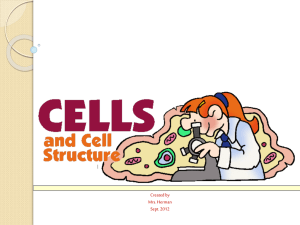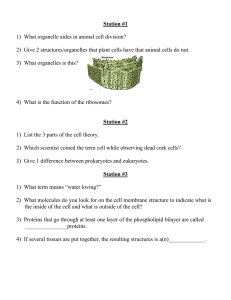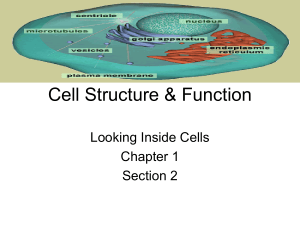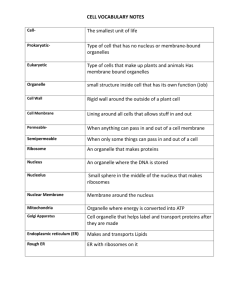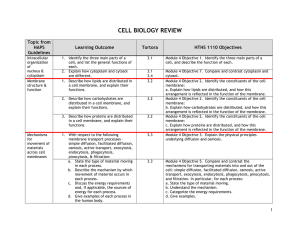Honors Biology Study Guide *Cells
advertisement
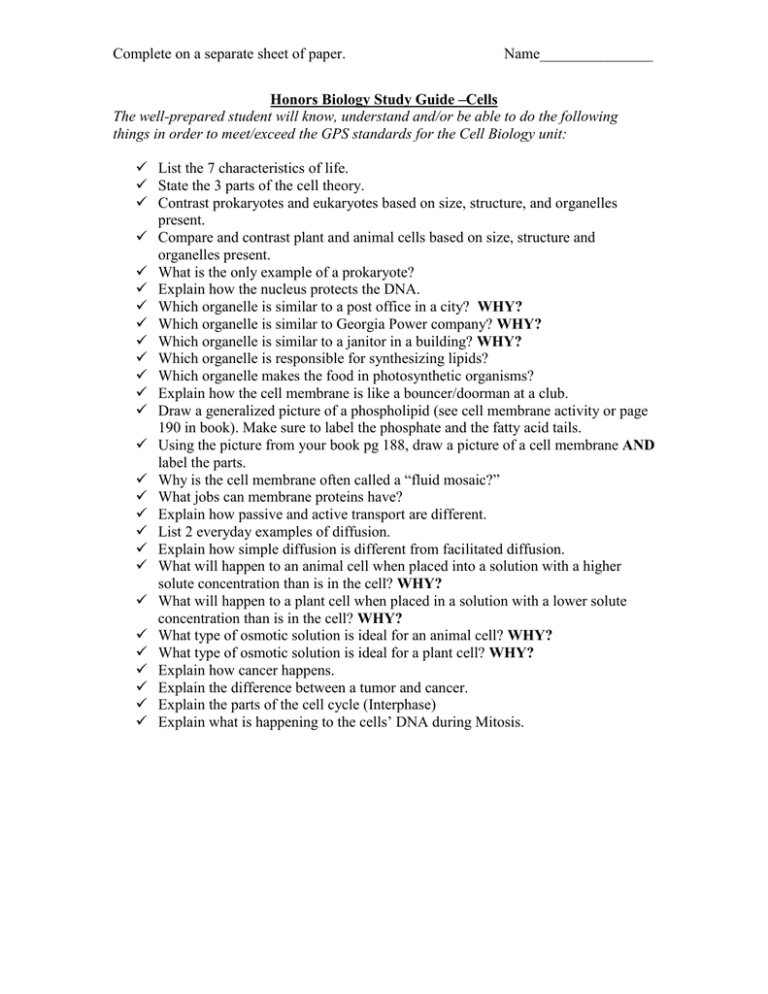
Complete on a separate sheet of paper. Name_______________ Honors Biology Study Guide –Cells The well-prepared student will know, understand and/or be able to do the following things in order to meet/exceed the GPS standards for the Cell Biology unit: List the 7 characteristics of life. State the 3 parts of the cell theory. Contrast prokaryotes and eukaryotes based on size, structure, and organelles present. Compare and contrast plant and animal cells based on size, structure and organelles present. What is the only example of a prokaryote? Explain how the nucleus protects the DNA. Which organelle is similar to a post office in a city? WHY? Which organelle is similar to Georgia Power company? WHY? Which organelle is similar to a janitor in a building? WHY? Which organelle is responsible for synthesizing lipids? Which organelle makes the food in photosynthetic organisms? Explain how the cell membrane is like a bouncer/doorman at a club. Draw a generalized picture of a phospholipid (see cell membrane activity or page 190 in book). Make sure to label the phosphate and the fatty acid tails. Using the picture from your book pg 188, draw a picture of a cell membrane AND label the parts. Why is the cell membrane often called a “fluid mosaic?” What jobs can membrane proteins have? Explain how passive and active transport are different. List 2 everyday examples of diffusion. Explain how simple diffusion is different from facilitated diffusion. What will happen to an animal cell when placed into a solution with a higher solute concentration than is in the cell? WHY? What will happen to a plant cell when placed in a solution with a lower solute concentration than is in the cell? WHY? What type of osmotic solution is ideal for an animal cell? WHY? What type of osmotic solution is ideal for a plant cell? WHY? Explain how cancer happens. Explain the difference between a tumor and cancer. Explain the parts of the cell cycle (Interphase) Explain what is happening to the cells’ DNA during Mitosis.
